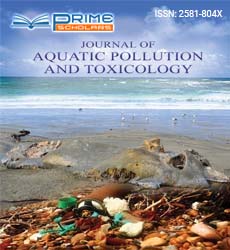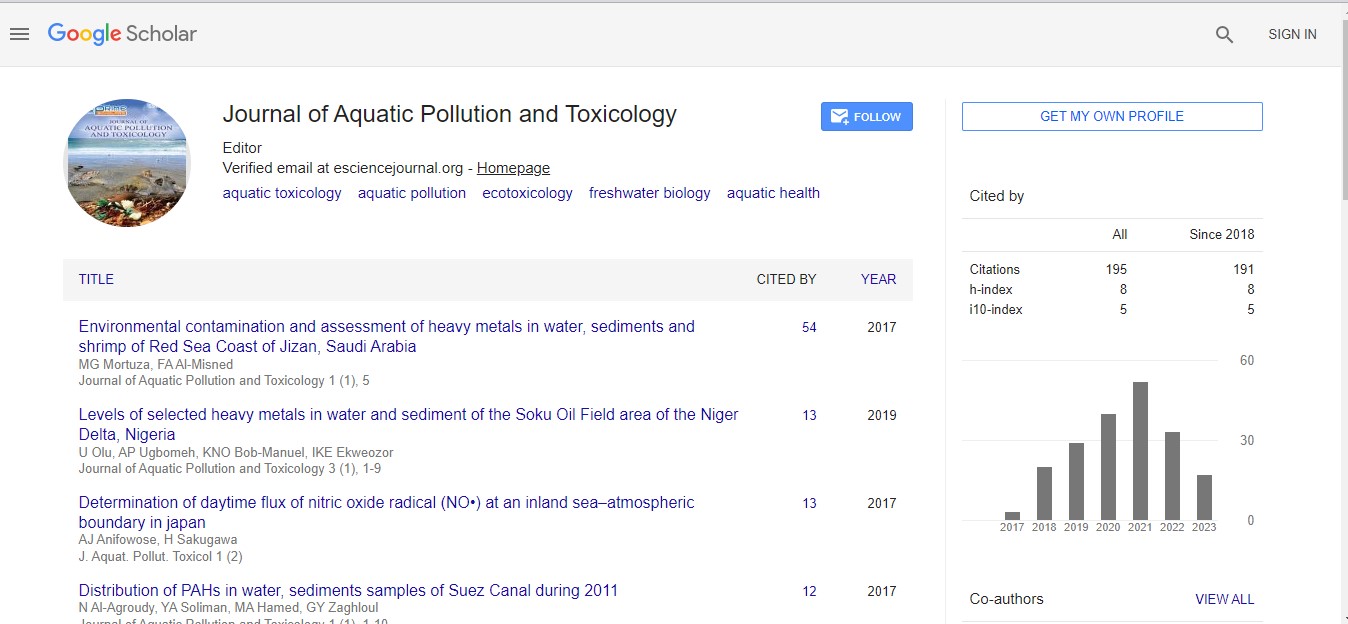Perspective - (2022) Volume 6, Issue 6
The Global Participation in Estimating Environmental Health by Considering Pollutants Present in Air, Water and Waste-Management
Zahra Aghalar*
Department of Environmental Sciences, Gonabad University of Medical Sciences, Islamic Republic of Iran
*Correspondence:
Zahra Aghalar,
Department of Environmental Sciences, Gonabad University of Medical Sciences,
Islamic Republic of Iran,
Tel: 8541279630,
Email:
Received: 31-Oct-2022, Manuscript No. IPJAPT-22-14921;
Editor assigned: 02-Nov-2022, Pre QC No. IPJAPT-22-14921 (PQ);
Reviewed: 16-Nov-2022, QC No. IPJAPT-22-14921;
Revised: 21-Nov-2022, Manuscript No. IPJAPT-22-14921 (R);
Published:
28-Nov-2022, DOI: 10.21767/2581-804X-6.6.59
INTRODUCTION
The field of natural well-being is one of the most important areas
of clinical science and is taught or researched at many prestigious
universities around the world. His three specific areas of ecological
well-being are water pollution, air pollution, and strong
waste management, each of which has a significant impact on
causing or preventing disease and promoting human well-being.
For example, water pollution by various toxins such as micro-organisms,
natural and man-made mixtures, synthetic compounds
and minerals, plant material, radioactive substances, waste, oils
and residues adversely affects human well-being, organisms and
the climate. About 33% of the world’s water resources are polluted.
In this report, pollution is a hazard that affects the composition,
physical, and surprising taste properties of water. Air
pollution has also recently become a major ecological problem
in all countries due to its negative impact on well-being, economy
and climate. According to the World Wellbeing Association,
800,000 people suffer premature cardiovascular and respiratory
infections and cell destruction in the lungs each year due to air
pollution.
Description
Poor waste management can also result from improper treatment
and unnecessary removal of various metropolitan, modern,
commercial and clean wastes that contribute to water, soil
and air pollution. It poses a threat to human health and can
cause respiratory illness, diarrhea etc. As mentioned earlier, research
directions related to the three main areas of ecological
well-being, particularly water pollution, air pollution, and strong
waste management are essential for human well-being and natural
resource security. By constantly monitoring water pollution,
air pollution, and heavy waste management in various networks
and disseminating our findings in the form of logical articles and reports, we are able to distinguish between plague and natural
problems and take appropriate preventive measures accurate
data is created. Numerous logical points in the field of water pollution
(surface water source pollution, turbidity, chlorine, taste,
odor, etc.), air pollution (indoor pollution, outdoor pollution,
ozone, carbon monoxide pollution, etc.), as a global problem,
strong waste management (leachate, landfills, heavy metals,
etc.) will persuade ecological well-being experts to address the
nature of science and collaborate with global and diverse scientists.
Find viable and productive answers to ecological problems
through logical collaboration. Recently, public and global logical
cooperation has expanded, and the famous logical diary prefers
to disseminate articles that are the result of the efforts of other
scientists, especially writers from several countries. In the field
of natural welfare, as is the case in the clinical sciences, it is common
for research and articles to be carried out with the support
of an increasing number of global experts and scientists.
Conclusion
The pattern of the Communist Party of China Insights into assessing
showed that about a portion of these analysts’ findings came
from global logical collaboration. A review analyzing the coordinated
efforts of Iranian experts with different countries placed
in the scientific reference data set from 1998 to 2007 found that
Iranians worked with 115 countries around the world. Given their
findings and investigations by various surveys of how much logical
involvement there has been from world-class scientists from
various countries, noted that the level of global support for collecting
articles on water pollution, air pollution and strong waste
management was adequate flat. Given the lack of joint European
and American efforts in the article, it seems important to find
ways to involve additional experts from the top countries for air
pollution, water pollution, and strong waste management.
Citation: Aghalar Z (2022) The Global Participation in Estimating Environmental Health by Considering Pollutants Present in Air, Water and Waste-Management. J Aquat Pollut Toxicol. 6:59.
Copyright: © 2022 Aghalar Z. This is an open-access article distributed under the terms of the Creative Commons Attribution License, which permits unrestricted use, distribution, and reproduction in any medium, provided the original author and source are credited.

